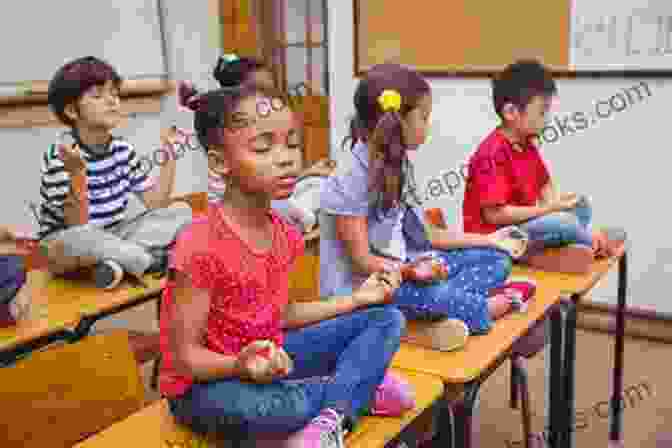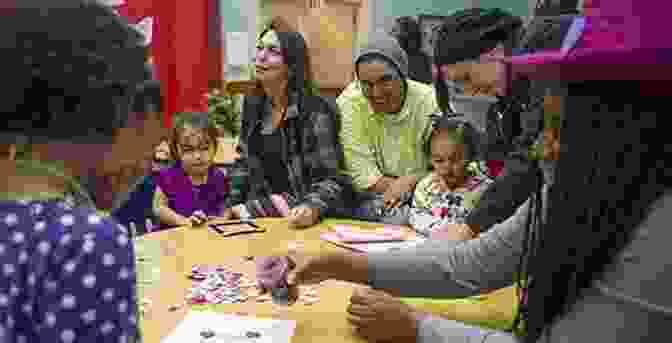: The Search for a Deeper Purpose in Education
In an era defined by rapid technological advancements and relentless academic pressures, it is imperative for us to question the foundations of our educational system and seek a holistic approach that encompasses the whole child.
5 out of 5
| Language | : | English |
| File size | : | 571 KB |
| Text-to-Speech | : | Enabled |
| Screen Reader | : | Supported |
| Enhanced typesetting | : | Enabled |
| Word Wise | : | Enabled |
| Print length | : | 162 pages |
| Lending | : | Enabled |
The book "The Spiritual Ground of Education" offers a thought-provoking exploration, delving into the very essence of what it means to educate a young mind and heart. Author Dr. Toni Murdock shares her insights and experiencias, gleaned from decades of experience in the field of education.
The book argues that true education goes beyond the mere transfer of knowledge and skills. It is a nurturing process that fosters the spiritual, emotional, and social development of children, empowering them to lead fulfilling and compassionate lives.
Chapter 1: Connecting with the Teacher Within

Chapter 1 emphasizes the profound role of the teacher as a spiritual guide. Educators have the unique opportunity to inspire children, ignite their curiosity, and cultivate their moral compass.
Dr. Murdock highlights the importance of self-reflection and introspection for teachers, encouraging them to connect with their own inner wisdom and become role models of empathy and compassion.
Chapter 2: Nurturing the Emotional Landscape
Chapter 2 explores the vital importance of nurturing the emotional landscape of children. Education should not only focus on cognitive development but also on cultivating emotional intelligence and self-awareness.
Dr. Murdock shares practical strategies for creating a classroom environment where children feel safe, respected, and empowered to express their emotions healthily.
Chapter 3: fostering Social Responsibility

Chapter 3 delves into fostering social responsibility in children. Education has a pivotal role in shaping young minds and hearts, preparing them to become active and responsible citizens.
Dr. Murdock emphasizes the importance of fostering cooperation, empathy, and a sense of belonging among students, equipping them with the skills to navigate social interactions and make ethical decisions.
Chapter 4: Embracing Diversity and Inclusion
Chapter 4 highlights the crucial need for embracing diversity and inclusion in education. Every child has unique gifts and perspectives to share, and a truly spiritual education celebrates and values this diversity.
Dr. Murdock provides guidance on creating inclusive classrooms where all students feel respected and empowered to learn and grow together.
Chapter 5: The Power of Mindfulness and Meditation

Chapter 5 explores the transformative power of mindfulness and meditation in education. These practices cultivate self-awareness, presence, and resilience, equipping children with tools for navigating the challenges of life.
Dr. Murdock shares accessible techniques and activities that teachers and parents can use to introduce mindfulness and meditation into the educational setting.
Chapter 6: Redefining Success
Chapter 6 challenges the conventional definition of success in education. True success encompasses not only academic achievement but also personal growth, empathy, and a sense of purpose.
Dr. Murdock encourages educators and parents to focus on fostering a lifelong love of learning, curiosity, and compassion.
Chapter 7: The Role of the Community

Chapter 7 highlights the vital role of the community in supporting education. Schools cannot operate in isolation; they need the active involvement and support of families, businesses, and organizations.
Dr. Murdock shares ideas for building strong community partnerships that enhance the educational experience for all students.
: A Call to Action for Transformative Education
In the concluding chapter, Dr. Murdock issues a passionate call to action. She invites educators, parents, and community members to embrace the spiritual ground of education and work together to create a transformative learning experience for all children.
By nurturing the whole child - intellectually, emotionally, socially, and spiritually - we can empower a generation of young people who are ready to make a positive impact on the world.


























































































